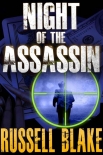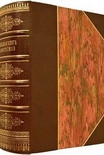The Cutthroat, Clive Cussler [best ereader for manga txt] 📗

- Author: Clive Cussler
Book online «The Cutthroat, Clive Cussler [best ereader for manga txt] 📗». Author Clive Cussler
But only when women began gasping and crying out did Marion realize she was not as caught up in the play as the rest of the audience. She glanced at Lillian, a brave and steady young woman. Lillian looked terrified. Even Archie, who had seen it before, appeared so riveted that Marion half expected him to pull a pistol to protect them.
As it raced on, as a huge airplane swooped over the stage, as Hyde leaped on the roof of a speeding subway car, as the utterly compelling Isabella Cook came within inches of destruction—prompting more than one man to start from his seat to help her—Marion wondered why she was not quite so engaged as the others. The answer was simple, and no fault of the brilliant production. She so admired every bit of craft that was stirring the audience that her mind had shifted to the technical details of how she could re-create and embellish those effects on film.
The play ended to standing ovation, shouts, and cheers.
Lillian said, “Let’s go backstage and meet the actors.”
“No,” said Marion. “Not me.”
“Why?”
“I want to see them as I saw them.”
A little pout started to form on Lillian’s face, but it melted into a smile. They were very close, with Marion sometimes in the role of big sister. “I know what you mean. You’re right. Let’s remember them as we saw them.”
Archie said, “I sense a ‘Marion plot,’ don’t I?”
Marion Morgan Bell clutched the program in her fist. “I am going to make a movie of Barrett & Buchanan’s Dr. Jekyll and Mr. Hyde.”
Isaac Bell rode the London & North Western back to London, retrieved his clothing from Euston’s baggage office, and changed in the lavatory. Then he telephoned Joel Wallace from a coin-operated call box. The box he chose was at the end of the row, with cut-glass windows overlooking the station’s Great Hall.
Wallace asked, “How’d you make out in Manchester?”
“Found out why they hate each other. Otherwise, a bust. The poor girl fell for a good-looking theater callboy who may or may not have been the guy who tried to kill her. That’s who she remembered . . . Any more cables from New York?”
“Testy one from the Boss.”
“Another ‘Report now’?”
“‘Report immediately.’”
“What does Research say?”
“No new bodies since you sailed. Except a tall brunette they don’t think counts.”
“Missing girls?”
“Chicago, Pittsburgh, Columbus.”
On Bell’s orders, Grady Forrer’s boys were querying field offices daily for reports of missing girls who resembled the fair and petite murder victims.
“None out west?”
“None we hadn’t heard about earlier.”
Bell pondered the report. Missing girls, no bodies. Young women disappeared for all sorts of reasons. But this murderer so often succeeded in hiding his victims.
“Have you ever been to Wilton’s Music Hall?”
“In Whitechapel? No, the Methodists took it over for a mission twenty years ago. Why?”
“Just a thought. Ever hear of a guy in the theater named Jack Spelvin?”
“On the stage?”
“Could be anything—an all-rounder, or even a scenic designer, director, actor, manager.”
“Not here in London. I think I heard of a George Spelvin back home. Not Jack. Why?”
“Emily’s crush,” Bell answered distractedly. His eyes roamed the train travelers crisscrossing the Great Hall.
“What’s the word on Lord Strone?”
“Out of business,” said Wallace. “The Secret Service Bureau gave him his walking papers.”
“Are you certain?”
“As certain as I can be about spies. Cabled a fellow I bank on to confirm. He cabled back that Strone’s gone fishing in Florida.”
“We’ll see about that,” said Bell. “I’ve got another job for you.”
“When?”
“Right this minute. On the jump!”
Isaac Bell took an escalator deep underground to the tube train and rode east for several stops. He returned to the surface at Moorgate. A misty drizzle mingled with the coal smoke. It was hard to see fifty feet ahead. He walked into the East End and onto Bishopsgate, a busy commercial street jam-packed with wagons and double-decker horse trams that cut through the Whitechapel district that Jack the Ripper had terrorized.
The Range Riders, a Tom Mix Western, was showing at the Electric.
Bell bought a ticket. The movie theater sat more than a hundred and was so recently built that he could smell the paint. He found a seat in the back row. Before the Western started, they showed a Picture World News Reel of “Old King Teddy’s”—King Edward VII’s—funeral processing through London. Bell grinned with delight. Wait ’til he told Marion that the newsreel she had shot a full year ago—five hundred and twenty feet of what the movie people call topical film—was still playing in the theaters.
A man in a bowler and a long black coat entered from the curtained lobby and took a seat one over in the row in front of Bell. In the light flickering from Marion’s film, Bell saw he was in his thirties and impeccably dressed. He had walked ramrod straight, and he sat similarly stiff and upright. Neither his bowler and walking stick, nor his civilian topcoat, could disguise the proud badge of lifelong military service.
Isaac Bell leaned forward and whispered in his ear, “My wife made this film.”
The icily supercilious retort matched his posture: “Are you addressing me, sir?”
“Why did you follow me from Euston Station?”
“I beg your pardon.”
“You and I caught the Tube to Moorgate. Then we walked—London Wall on to Broad Street, Liverpool, and up Bishopsgate. We could have taken London Wall direct to Wormwood and Bishopsgate, but I wanted to be absolutely certain it was you again before I punched you in the nose.”
21





Comments (0)